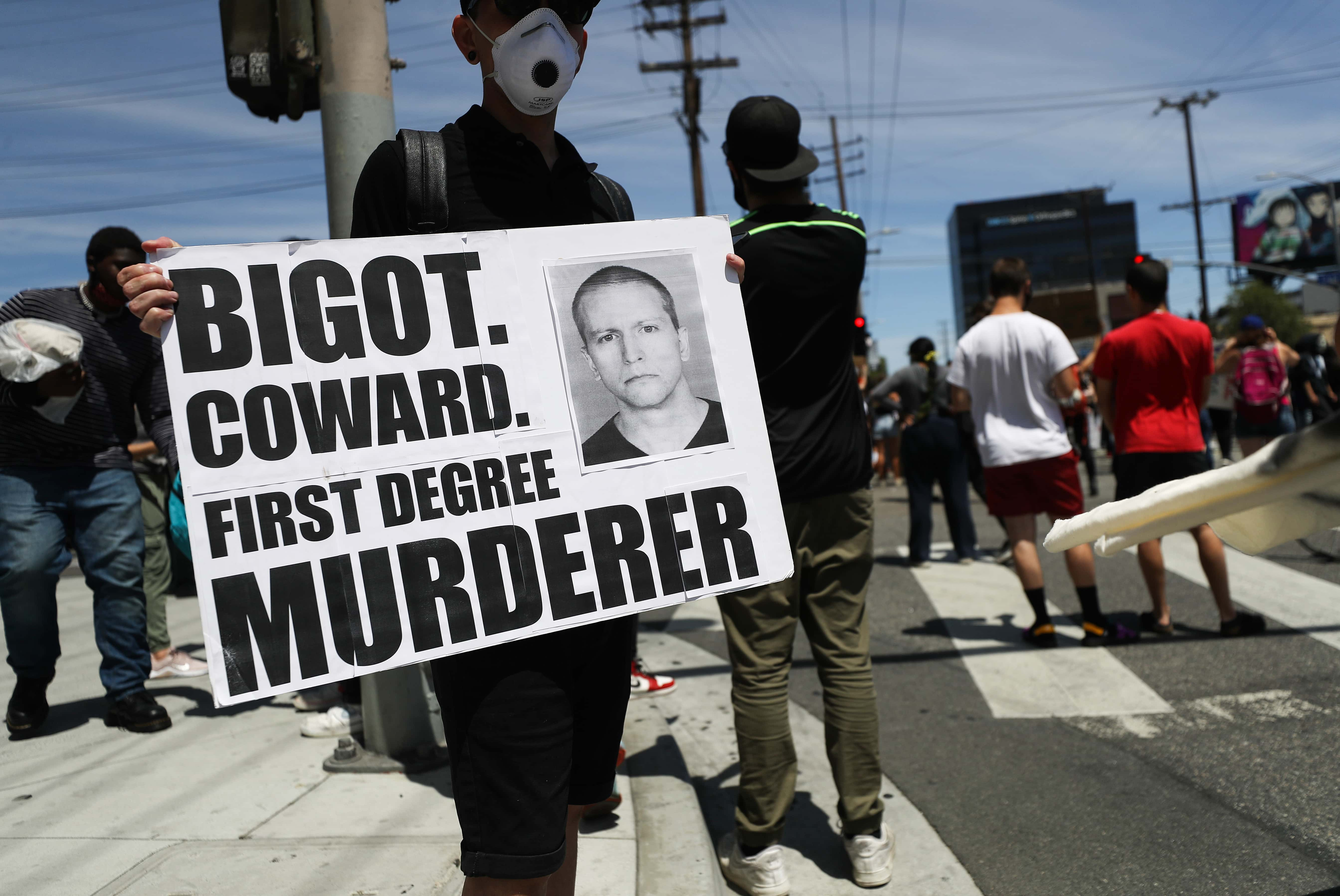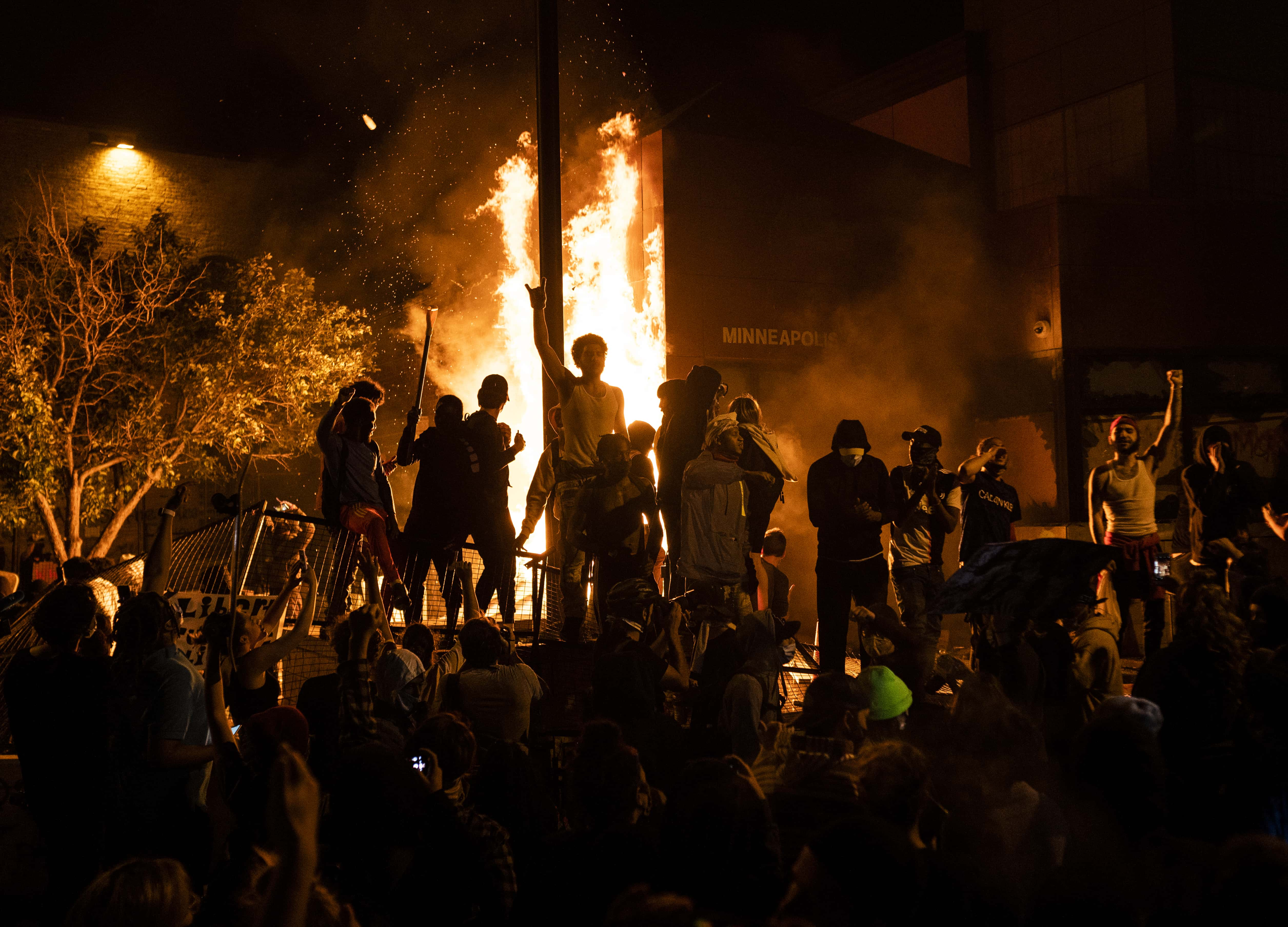Inside the DoJ's secret plan to arrest Derek Chauvin if he was found not guilty, in order 'to preserve peace'

For millions of Americans, the guilty verdict against Derek Chauvin was welcome news. It wasn't a guarantee though, as historically cops have been allowed to walk free by many juries. If that was the outcome Chauvin faced, a new report has revealed federal authorities had a backup plan.
In a bid to ensure on the streets of Minnesota and around the country would be calm, the Department of Justice (DoJ) had an alternative to ensure Chauvin would not walk free. Now that he has been found guilty, the backup plan has been shelved. Nonetheless, prosecutors are still moving forward with their case to indict Chauvin on police brutality charges.
RELATED ARTICLES
George Floyd Square in Minneapolis singles out White people on welcome board: 'Decenter yourself'
Details of the plan have been revealed by insiders to Star Tribune and show just how far the government was willing to go to preserve peace. The plan also shows the importance of Chauvin's verdict, with a nation on edge during his trial. Here's how Chauvin would have been arrested instead.

Plans to arrest Chauvin in court
The secret plan between the DoJ and the Minnesota US Attorney's Office would have Chauvin charged with a criminal complaint. In case Chauvin was found not guilty, or a mistrial declared, prosecutors planned to arrest Chauvin in court. Going down this route "doesn't require a grand jury — so they could arrest him immediately, and then asked a grand jury for an indictment" the Tributne reported.
Chauvin would have been indicted in two cases - for the death of Floyd and the violent arrest of a 14-year-old in 2017. Along with Chauvin, the other three officers Alexander Kueng, Thomas Lane and Tou Thao would have also been arrested on civil rights violations in relation to George Floyd. The contingency plan was being discussed as a last-ditch effort to prevent an outbreak of violence on the streets of Minneapolis, which had become something of a warzone in recent weeks. Protesters were already on the street nearly daily during the trial and riots ensued for days after Duante Wright was shot and killed by Kim Potter on April 11.

Now that Chauvin has been found guilty by the jury, prosecutors are focused on other cases against Chauvin. To be clear, there are several cases against the former police officer. The State of Minnesota was prosecuting the case that led to his guilty verdict. Running parallel to that case, federal authorities were making a case against Chauvin in front of a grand jury for his 2017 incident. That case was being done in secret, with witnesses being subpoenaed on February 24.
Now that the state's case has concluded, several other cases against him and the Minneapolis Police Department (MPD) are underway. A day after the verdict, the DoJ announced the investigation into the "pattern and practice" of conduct by the MPD. The Minnesota Department of Human Rights is also undertaking its own probe into the police department. “People throughout the city of Minneapolis want a public safety system that protects and serves all members of our community,” said Acting US Attorney W Anders Folk for the District of Minnesota. “This investigation by the Department of Justice provides a vital step to restore and build trust in the Minneapolis Police Department and its officers.”
Together, all these probes indicate that Chauvin is far from done. Even though he has been found guilty, he could face more jail time as the cases against him continue to build. It's also bad news for the MPD, which could see a massive shakeup from the DoJ investigation.










